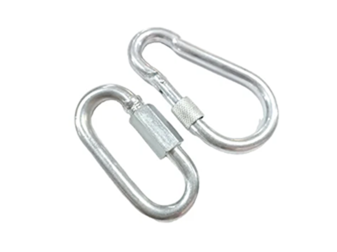Août . 08, 2024 04:05 Back to list
High-Strength Titanium Hex Nut Perfect for Heavy-Duty Applications and Corrosion Resistance
The Titanium Hex Nut Strength and Versatility in Engineering
When it comes to fasteners, the importance of material selection cannot be overstated. Among the various options available in the market, titanium hex nuts have emerged as a popular choice for engineers and designers across multiple industries. These seemingly simple components embody a remarkable blend of strength, lightweight properties, and corrosion resistance, making them indispensable in high-performance applications.
What is a Titanium Hex Nut?
A titanium hex nut is a type of fastener characterized by its hexagonal shape and internal threading, which allows it to be securely fastened onto a bolt or screw. The term hex refers to the six-sided structure of the nut, which provides a robust grip for wrenches during the installation and removal processes. Titanium, in this context, denotes the material from which the nut is made—highly regarded for its superior mechanical properties.
Advantages of Titanium
Titanium is well-known for being much lighter than steel while offering comparable strength. This unique property is especially critical in aerospace and automotive industries, where every ounce counts. The weight savings achieved by using titanium hex nuts can significantly reduce the overall mass of an assembly, contributing to increased fuel efficiency and performance.
Moreover, titanium boasts excellent corrosion resistance, making it suitable for applications in hostile environments, such as marine or chemical settings. Unlike steel, which can rust and degrade over time, titanium resists the harmful effects of salts, acids, and other corrosive elements. This durability means that structures can be maintained with less frequent replacements, further driving down overall life-cycle costs.
Applications
titanium hex nut

The versatility of titanium hex nuts extends across a wide range of industries. In aerospace, they are commonly used in aircraft assemblies, where lightweight and high strength are critical. For instance, titanium fasteners are instrumental in securing wing components, fuselage frames, and more, facilitating safer and more efficient flight.
In the automotive industry, titanium hex nuts contribute to weight reduction in high-performance vehicles, particularly in motorsports. Here, every component is meticulously engineered to enhance speed and agility, and titanium parts help achieve a winning edge on the racetrack.
Additionally, the medical field has recognized the value of titanium due to its biocompatibility. Surgical instruments and implants often utilize titanium hex nuts for secure fittings, ensuring that medical devices remain safe and effective within the human body.
Considerations for Use
While titanium hex nuts offer outstanding benefits, there are some considerations to keep in mind. They tend to be more expensive than their steel counterparts, which can be a significant factor in budget-sensitive projects. Therefore, engineers must weigh the cost against the performance gains in specific applications.
Furthermore, working with titanium requires specialized tools and techniques due to its hardness and tendency to gall (a type of wear). Proper care and technique during installation are crucial to prevent damage and ensure the integrity of the assembly.
Conclusion
In summary, titanium hex nuts are a testament to modern engineering's pursuit of strength and efficiency. Their unique combination of lightweight, strength, and corrosion resistance makes them ideal for demanding applications in aerospace, automotive, and medical sectors. As industries continue to evolve, the role of high-performance materials like titanium will undoubtedly expand, underscoring the significance of titanium hex nuts in crafting the future of engineering solutions. Whether in the air, on the road, or in the operating room, titanium hex nuts are quietly playing a pivotal role in advancing our technology.


